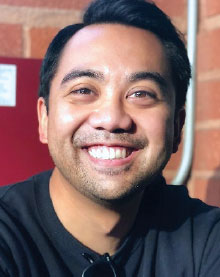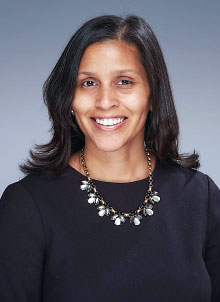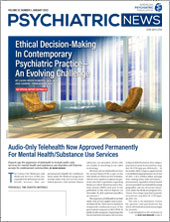Medical training must ensure that medical students graduate with a modern understanding of social determinants of mental health, said panelists in a session titled “Competencies for Trainees” at APA’s virtual 2021 Mental Health Services Conference in October.
Enrico Castillo, M.D., M.S.H.P.M., an assistant professor and the associate director of residency education at the Center for Social Medicine and Humanities in the UCLA Department of Psychiatry and Biobehavioral Sciences, kicked off the session with a discussion of core competencies for medical education by the Accreditation Council for Graduate Medical Education (ACGME). He said that the core competencies surrounding systems-based practice need to change. (The systems-based practice competencies focus on residents’ ability to work effectively in various health care delivery settings and systems to provide optimal care.)
“When they developed the competency, the goal was to move physicians away from the image of the solo practitioner toward a professional identity as a leader of complex health care systems,” Castillo said. But the competency “invites questions that it doesn’t answer. For example … What are physicians’ roles as systems actors outside of health care, working alongside communities? ... What if optimizing a system, for example, optimizing profit, harms patients?”
He noted the focus of that competency on considerations of value, cost awareness, and delivery of payment, “but what if those considerations harm multiple populations and obstruct access to care? In whose best interest are we acting? For minoritized patients and communities? Or for health care systems?”
Michelle P. Durham, M.D., M.P.H., vice chair of education and a clinical associate professor in the Department of Psychiatry at Boston University School of Medicine (BUSM), spoke of ACGME’s position on increasing diversity in the physician workforce and building safe, inclusive, and equitable learning environments for physicians.
Durham noted that only about 2% of U.S. psychiatrists are Black. “[W]e still have a long way to go to achieving that diversity to where it reflects the patients we serve in various parts of the U.S.,” she said. “All of our trainees in the physician workforce in general need to learn more about where their patients are coming from” and understand how to better care for those patients who belong to minority and underrepresented groups.
Durham said that the BUSM psychiatry residency program adjusted its training to better meet the needs of the surrounding community, wherein approximately 70% of the patients who come to Boston Medical Center identify as Black or Latinx, roughly 30% do not speak English as their primary language, and more than 50% have an annual household income below $20,400, which is close to the federal poverty line for a family of three.
“We have to have residents and trainees who are understanding of what people are coming into the health system with and what structural barriers are in play, and not just thinking of the clinical encounter [at hand] and what medicine to give,” she said.
Dwight Kemp, M.D., M.S., a fourth-year resident in the geriatric psychiatry residency program at the University of Alabama at Birmingham, discussed opportunities to address physician burnout and diversify the workforce.
“Medical students and residents have expressed a strong desire for medical and psychiatric curricula that incorporate structural analysis of health and health care, as evidenced by recent advocacy efforts, publication, and social media outcry such as White Coats for Black Lives,” Kemp said. “As the field of psychiatry strives to diversify the workforce to become more representative of U.S. demographics, structural competency curricula may serve as a recruitment tool to attract and retain young talent, including Black, Indigenous, and other people of color as well as … other underrepresented groups.”
Kemp added that qualitative study of existing structural competency curricula suggests that acquiring skills for taking structural action may help protect against and alleviate physician burnout by teaching psychiatrists and trainees how to respond to social determinants inside and outside the clinic. These skills include how to incorporate direct interventions on patients’ social and structural determinants of health into physician functions such as patient care, multidisciplinary team meetings, and supervision of trainees; identify and change team, program, or institutional practices that contribute to inequities in the quality of and access to care; participate in community partnerships and advocacy; and manage their own moral injury, moral distress, and burnout when confronting structural vulnerability and social and structural inequities. ■



